When I first read the Times summary of the VOICE study I was overtaken by a feeling of unease. Reading the actual report in the New England Journal of Medicine (NEJM) did little to assuage these feelings. In her recent Oped, published in Al Jazeera America, Susser succinctly explains what the Times and the VOICE researchers got wrong and shows how future studies can avoid these errors.
Tag Archives: South Africa
My First First Author Peer Reviewed Paper!
My first first author peer reviewed paper was just published in the Journal of Interactive Technology and Pedagogy (JITP) with most of the photography by Jesse Kipp!
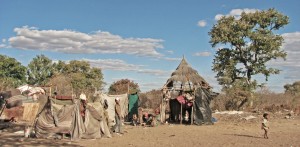
Here’s the abstract and a link to the full paper:
The term San refers to the indigenous people of southern Africa, who for thousands of years lived a nomadic lifestyle, hunting and gathering for subsistence. Some contemporary San still subsist partially on food gathered from the bush. Many others have been pushed from their traditional lands and lifestyles and now struggle to subsist earning low wages in rural areas on the edges of cattle farms or urban areas working in factories and living on the fringes of informal settlements. In the past decade the San have begun to use new digital tools to 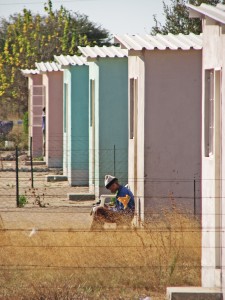 document, communicate, and represent their values and struggles. This article focuses on how San people used digital technologies to generate educational texts by transcribing and web publishing traditional oral folktales and to inject their own perspectives into critical political debates. In each of these cases digital media enabled San people to realize explicit and implicit social and political agendas that were realized through the use of digital media. This paper focuses on select digital representations of San people by San people and explores how these examples relate to larger issues of education and globalization in the region.
document, communicate, and represent their values and struggles. This article focuses on how San people used digital technologies to generate educational texts by transcribing and web publishing traditional oral folktales and to inject their own perspectives into critical political debates. In each of these cases digital media enabled San people to realize explicit and implicit social and political agendas that were realized through the use of digital media. This paper focuses on select digital representations of San people by San people and explores how these examples relate to larger issues of education and globalization in the region.
I especially want to thank Richard Lee and Megan Biesele for their support in the field and their comments on the manuscript. And also my wife Sandy for being so supportive and 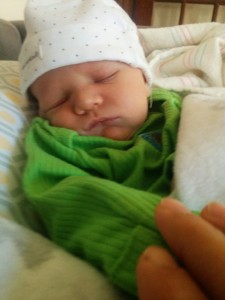 caring while I worked on the final revisions just weeks after little bear joined us! And thank you little bear for loving your bouncy (most of the time) while I made the revisions too!
caring while I worked on the final revisions just weeks after little bear joined us! And thank you little bear for loving your bouncy (most of the time) while I made the revisions too!
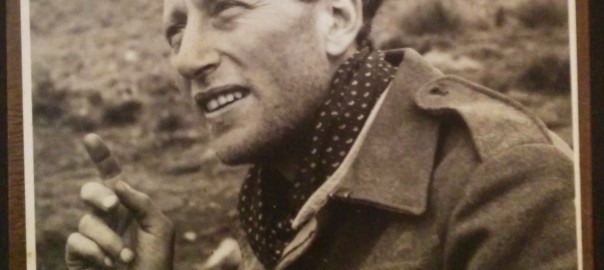
My Grandfather, Mervyn Susser, Passed Away Earlier This Month
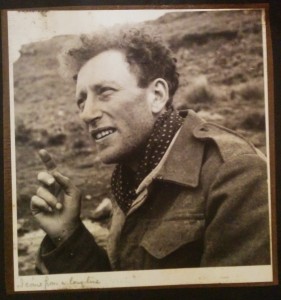
My grandfather Mervyn Susser passed away earlier this month. He was 92, and as one would hope for most people who live to 92, he had an amazing life.
I’m proud of him in so many ways. His work was extremely important to him and I think this recent article from the Times Health section does a good job of summarizing his contributions.
“He learned on the job in the 1950s while working in a clinic that served black South Africans and went on, over the next several decades, to examine peptic ulcers in Europe, hunger in the Netherlands, and AIDS in the United States and in South Africa. He and his wife, Dr. Zena Stein, promoted some of the earliest educational and treatment programs for AIDS in South Africa. Dr. Susser sought to improve public health from the ground up by gathering data on who was affected by diseases and why, and by trying to understand what their distinctive social and economic circumstances were”.
Though to me he was always Grandpa. Grandpa who spent long hours in his study and wasn’t to be disturbed. Grandpa who’d sit me on his knee and tell about camping in the desert and driving armored cars in the war. Grandpa with his big brimmed hats who knew every plant in the garden and couldn’t walk anywhere without stooping down to weed something. Grandpa who always joined the family for dinner, his booming, deliberate voice, pausing, to make everyone wait as he expounded on Israel, Iraq, global poverty – name it. Grandpa who’d recount playing rugby and cricket, while we watched hours of summer baseball – mostly the Yankees who’d introduced a precocious rookie shortstop.
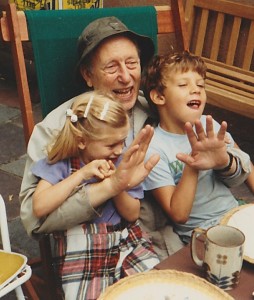
Years later as my family gathered to sit shiva I listened to stories from my mother, uncle and aunt about moving from South Africa, to England and finally settling in New York – and yet never really being English, or American – never belonging anywhere. I reflected on my own experiences of belonging and how in my grandparents house and their garden I’ve felt a deep sense of belonging.
It took them the better part of 50 years but they finally did find a place to make a permanent home for their family. Though for my grandparents, and certainly my grandfather – home would always be South Africa. Some days after he passed away I searched the Times archive for his name. One article published in 1985 and titled Emigres Welcome Apartheid Battle caught my eye. Grandpa – or Mervyn Susser – is quoted, ”We still regard ourselves as displaced South Africans”. With Grandma Zena adding that their home in Hastings was “”a transit camp for South Africans.”
In his final years Grandpa became increasingly confused. As the family gathered for weekend lunches, the Hudson sparkling in the distance, grandpa would say things like “Whoever owns this place has done quite well”. Of course this was the garden he’d created and it was his home.
Then he’d tap grandma on the knee and say “C’mon Zeen it’s time to go”. And the rest of us would smile and gently remind him that of course – he was already home.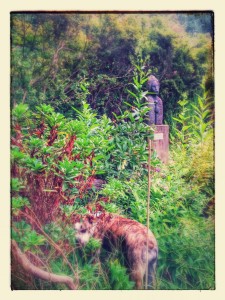
This happened quite often and at one point my brother playfully asked “Grandpa where are you going?”
“To the hotel, in Grootfontein,” his childhood home.
In his final weeks he stopped commenting on the lovely view from the veranda, and he stopped urging Zena to take him home. To check on him we’d sometimes ask, “Grandpa where are you?” And he’d reply confidently “In Grootfontein”.
As he said to the Times reporter all those years before, South Africa would always be his home. Though for us grandchildren he’s created a new home in Hastings. And of course it’s not the just the place but the wonderful and caring family who come together there that make it home.
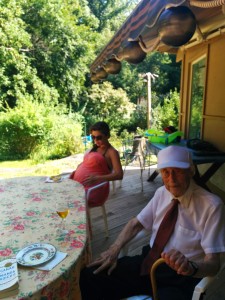
…for the record a couple other obits were published since I wrote this:
Mervyn Susser obit ZA Sunday Times pdf
and
